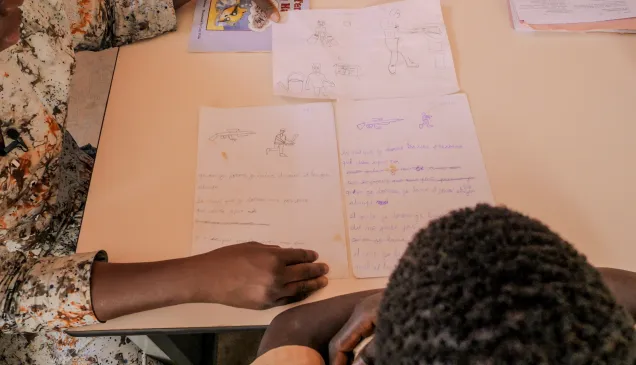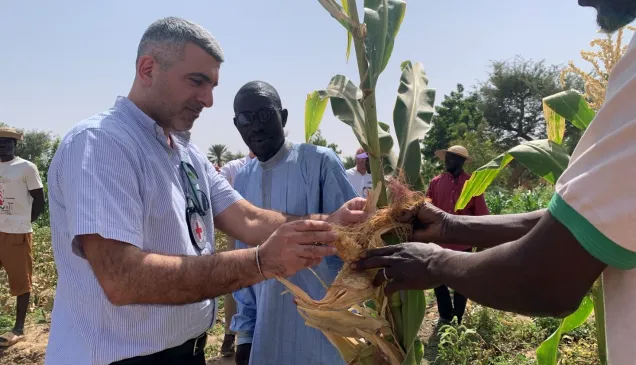Burkina Faso: When water scarcity meets conflict
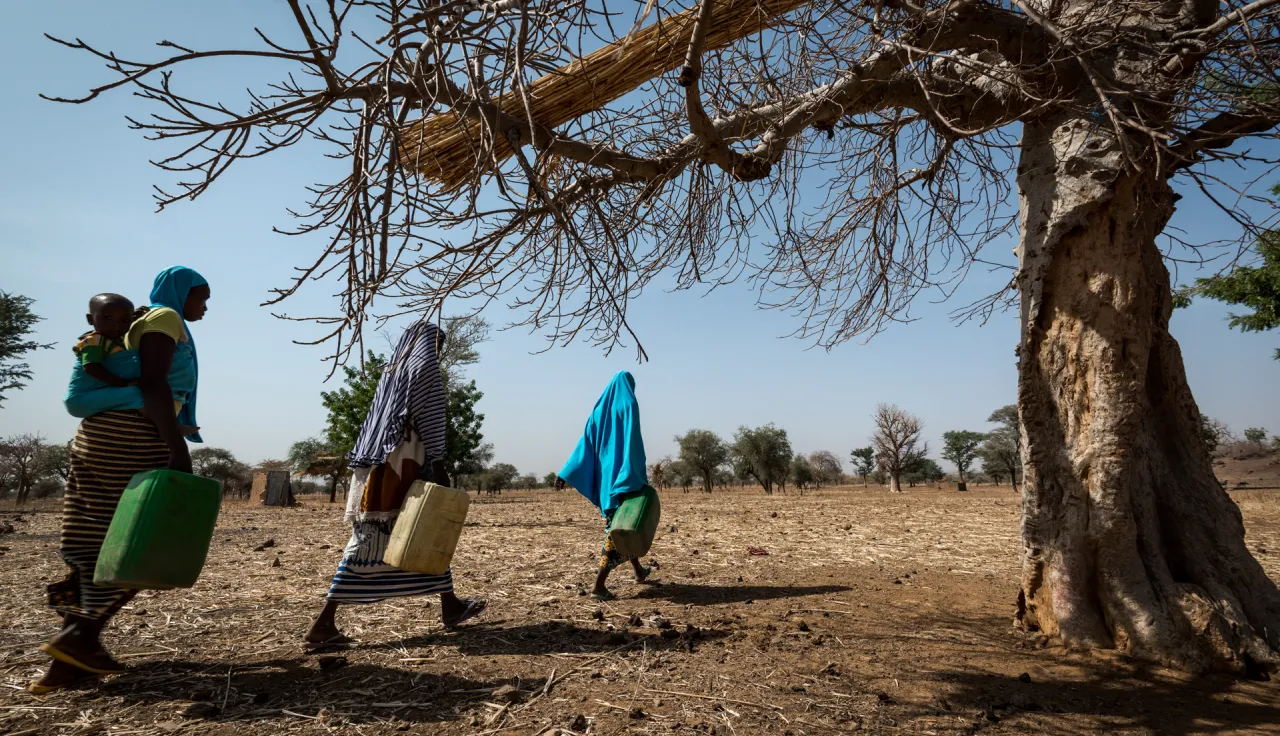
Burkina Faso has been experiencing a humanitarian crisis since armed conflict broke out in 2016. As in the rest of the Sahel region, a prolonged drought has only made things worse.
Wendgouda Priva Kabré, head of the ICRC's water and habitat activities in Burkina Faso, explains why the situation has become unbearable for many communities, who have found themselves caught between armed violence and a deadly water shortage.
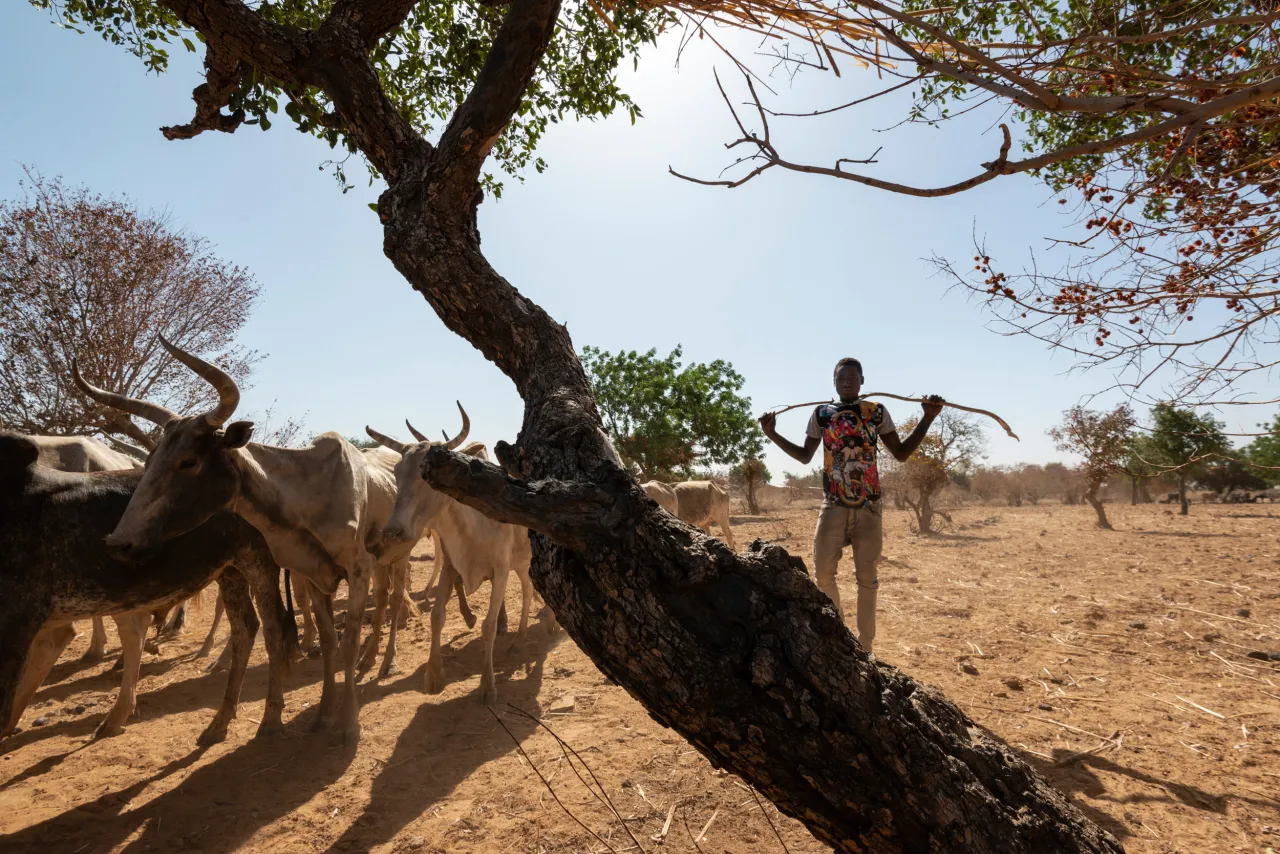
Pastures are disappearing under the combined pressure of rising temperatures and the sale of land for construction. The presence of armed groups on the traditional trans-humance paths made certain pastures inaccessible.
Q: How has climate change impacted the people there?
Wendgouda Priva Kabré: The challenges faced by these communities may not be directly due to climate change per se, but people do talk about how much the environment has changed. Temperatures have risen over the past 20 years, and drought has become a major problem.
There is less and less water to be found in wells and natural reservoirs. Farmland that used to stay moist for six months now dries up after three. The rains have become unpredictable: they come too early or too late, which creates a lot of uncertainty for farmers.
The farther north you go in the country, the harder it is to find water. Unfortunately, the areas with the worst drought are also dealing with armed violence. Water is an issue nearly everywhere we work. It's at the heart of our concerns and our humanitarian response.
Blazing temperatures.
Erratic rainfall.
Dry wells.
Failed crops.
The climate crisis is devastating Burkina Faso. pic.twitter.com/B030cNgYMi— ICRC (@ICRC) June 25, 2021
Q: How has the ongoing conflict contributed to water scarcity?
Wendgouda Priva Kabré: Conflict in rural areas has caused a massive wave of displacement in the northern, eastern and central parts of the country. People have fled to villages and cities, doubling or even tripling their populations.
New neighbourhoods have sprung up, which has put additional pressure on basic infrastructure. Underground reservoirs are drying up fast. Meanwhile, government services have stopped doing maintenance work in many places because of the security situation.
These days, people often have to travel several kilometres and spend hours queuing for water. The trip can be dangerous. Women and girls are usually the ones sent to collect water, which forces them to abandon their own income-generating activities and cuts into time they would normally spend with their families.
The atmosphere at water collection points can be tense. Some people pay bribes to avoid standing in the queue. The whole situation is bad for social cohesion. New arrivals – the people who have fled their homes – are served last, which only adds to their troubles.
Q: Is water scarcity hampering the response to COVID-19?
Wendgouda Priva Kabré: Because water is so scarce, people have had to drastically reduce how much they use. What little water they do have, they ration carefully.
Hygiene and sanitation are secondary concerns. When we held awareness-raising sessions on sanitary measures for preventing the spread of COVID-19, people told us in no uncertain terms that for them, handwashing is a luxury. Their priorities are a matter of survival: water is for drinking, cooking and watering their animals.
In some places, humanitarian organizations are delivering water by truck so that the recommendations for combatting the pandemic can be applied. But it's far from enough.

Village of Sera. Badigueta Barry (center), a 34 year old breeder, is the mother of four children. She fled the town of Barsalogho a year ago with her husband, leaving all her belongings behind. She goes to fetch water from the only well which is more than a kilometer from the village, along with two other women.
Q: What is the health care situation in rural areas?
Wendgouda Priva Kabré: At the health centres where we provide support, diarrhoeal diseases are the main reason people come in to consult and the leading cause of death.
In the last six years, the conflict has intensified and led to an increased demand for medical services. But many health facilities have been damaged or destroyed, and a large portion of the health workforce have fled rural areas, where violence is rampant. Today, OCHA estimates that the violence is preventing 800,000 people from accessing health care.
Our teams are standing ready to renovate health centres. But 80 per cent of the time, we have to address water supply issues before we can begin. Take for example the commune of Barsalogho, in central Burkina Faso, which has taken in nearly 100,000 displaced people fleeing the violence. The population doubled in just one year. In 2019, we were providing support to Barsalogho's health centre, where the number of consultations had risen sharply.
The first thing we did was restore access to water, as the centre's well had dried up. We sunk a new well in a different location, but the flow is still not good. The centre is currently sharing its water supply with the displaced people living nearby.
Six months ago, they reported several cases of hepatitis E. The situation has since stabilized, but an investigation showed that the outbreak was due to contaminated water. Health and sanitation remain a serious challenge.
Today, OCHA estimates that the violence is preventing 800,000 people from accessing health care.
Q: How has water scarcity affected traditional ways of life?
Wendgouda Priva Kabré: Water scarcity has implications not only for health care but also for farming. Roughly 80 per cent of Burkina Faso's population depends on agriculture. But even before the conflict broke out, young people were already abandoning rural areas and moving to cities.
No one believes it's possible to earn a decent living from traditional agriculture anymore. The younger generation sees no future in scraping what little they can from the ground.
Land sales have only made the problem worse over the last decade. Real estate companies have been buying up land for housing projects, land that used to be leased to farmers for food production. The farmers are left with nothing.
With farming no longer an option, women have turned to collecting gravel or breaking up granite slabs in quarries for construction companies. It's back-breaking work that takes a serious toll on their health. Young people prefer to find odd jobs in cities, where they live in cramped, overpopulated slums with no basic infrastructure.
Those who remain in the countryside have one of two options. If they have the means, they sink their own wells. But they often have to dig very deep, and the results are increasingly inadequate. That option is only available to a few. Others buy synthetic fertilizers to increase their yields. The excessive use of pesticides is another environmental concern.
Another option is to dig holes in the fields to try to improve water retention and ground moisture, or to build makeshift dams out of stones to capture running water.
This kind of work is done manually with the materials at hand, and it reduces the amount of water available for cooking. Some families are only able to eat once a day, and it's common to see malnourished children at the health centres.
In addition to meeting people's urgent need for water, we must help them to become more resilient by supporting income-generating activities, among other measures.
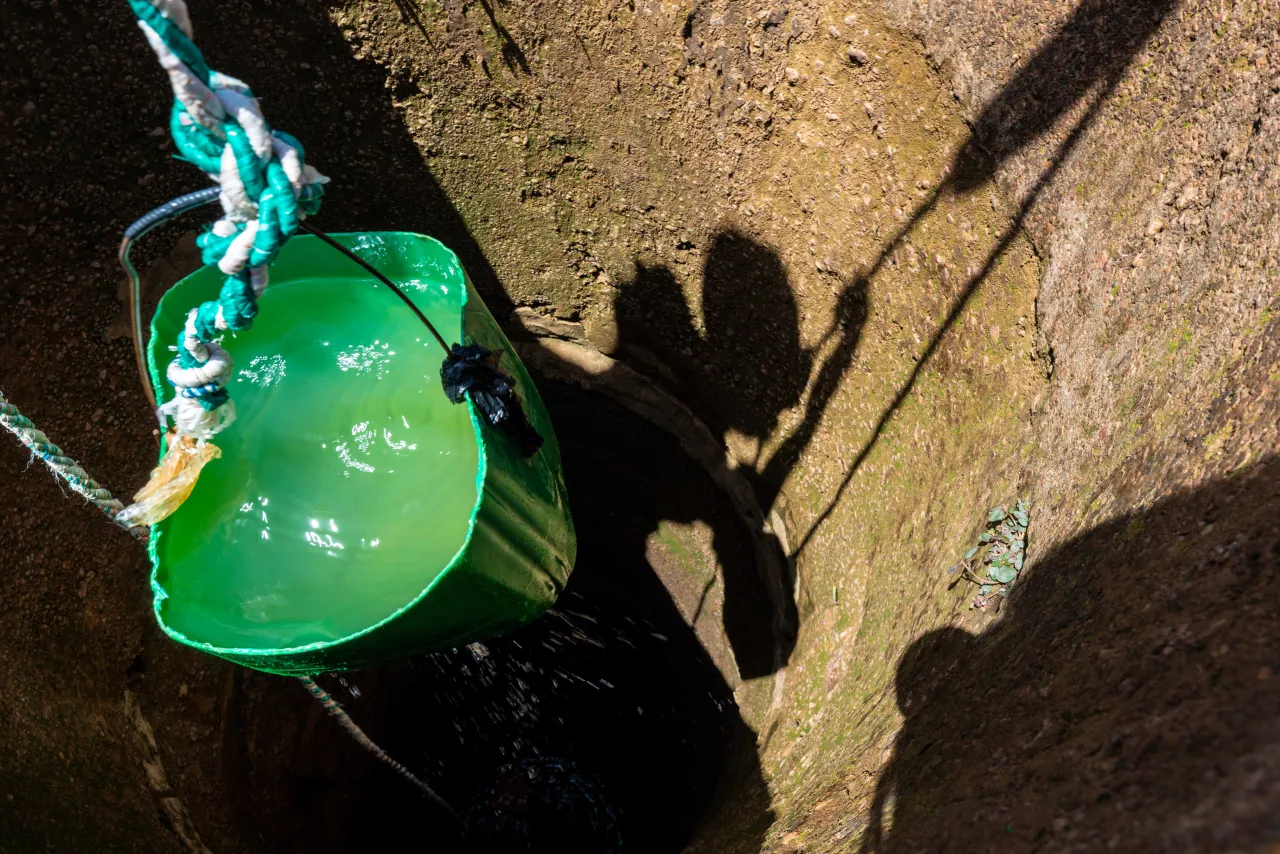
As water becomes scarce, the pressure on this resource increases with the arrival of displaced people in villages where the population can double or even triple. While priority and immediate needs, such as drinking and cooking, must be met, the herds must also be watered and the fields irrigated. Conflicts are increasing.
How are we helping?
We are working to understand the effects of climate change and climate-related risk in areas affected by violence. Every year we seek to improve our response, which includes:
- Providing water to displaced people and host communities;
- Training young people to repair hand-powered pumps so that the community never loses access to water;
- Building new water-collection sites at health centres (in Djibo, Fada, Kaya and Ouahigouya) and in neighbourhoods inhabited by displaced people;
- Creating small-scale water networks by identifying underground reservoirs and installing solar-powered pumps to increase access and decrease waiting times;
- Sinking wells in pastureland to reduce competition for water between humans and livestock (for security reasons, many herders bring their animals with them when collecting water);
- Conserving farmland by installing water-storage infrastructure and innovative technologies, such as drip irrigation.


